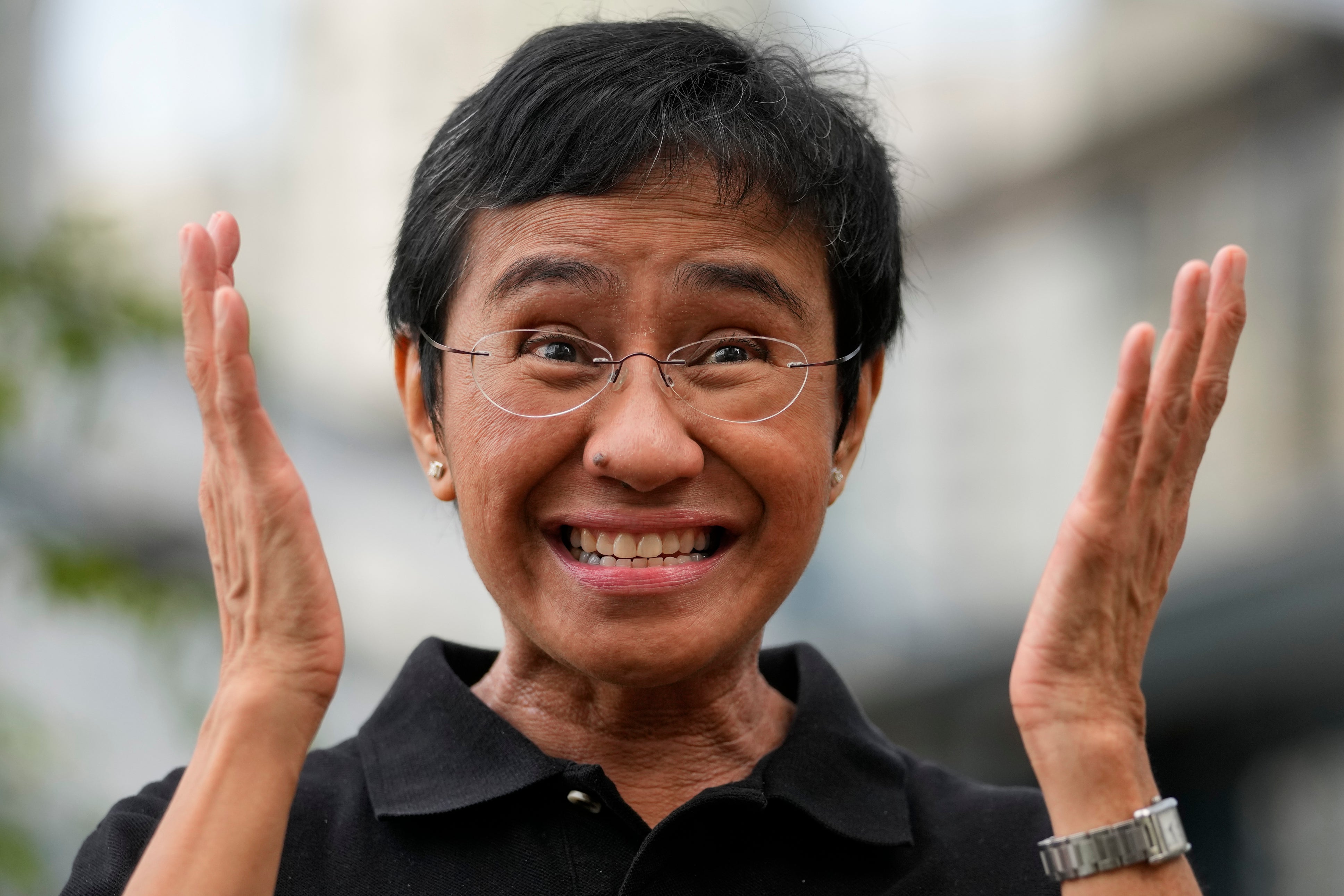Tribunal probing journalist slayings opens in The Hague
.A “people’s tribunal” has opened in the Netherlands to highlight the number of journalists around the world who were killed for doing their jobs. The tribunal, convened by a group of press freedom organizations, has no powers to sanction perpetrators. Instead, it plans to present evidence to raise awareness about journalists targeted to silence their reporting. The first hearing was taking place Tuesday a month after two journalists, one in the Philippines and one in Russia, won the Nobel...

Your support helps us to tell the story
From reproductive rights to climate change to Big Tech, The Independent is on the ground when the story is developing. Whether it's investigating the financials of Elon Musk's pro-Trump PAC or producing our latest documentary, 'The A Word', which shines a light on the American women fighting for reproductive rights, we know how important it is to parse out the facts from the messaging.
At such a critical moment in US history, we need reporters on the ground. Your donation allows us to keep sending journalists to speak to both sides of the story.
The Independent is trusted by Americans across the entire political spectrum. And unlike many other quality news outlets, we choose not to lock Americans out of our reporting and analysis with paywalls. We believe quality journalism should be available to everyone, paid for by those who can afford it.
Your support makes all the difference.A “people's tribunal” opened Tuesday in the Netherlands to highlight the number of journalists around the world who were killed for doing their jobs, often with impunity for their killers.
The tribunal, convened by a group of press freedom organizations, has no powers to sanction perpetrators but will present evidence to raise awareness about journalists targeted for attacks in order to stop their reporting. It is expected to issue a judgment in May next year.
The first hearing was taking place a month after two journalists, one in the Philippines and one in Russia, won the Nobel Peace Prize for their fight for freedom of expression in countries where reporters have faced persistent attacks, harassment and even death. One of the winners, Maria Ressa, was due to address the hearing via a video link.
“Since 1992, at least 1,400 journalists have been killed for doing their vital job - bringing reliable information to the public. In at least 900 of these cases, journalists were killed in direct reprisal for their work. In 86% of these cases, none of the perpetrators are brought to justice,” organizers said.
The tribunal is focusing on three slain journalists: Lasantha Wickrematunge in Sri Lanka Nabil Al-Sharbaji in Syria and Miguel Ángel López Velasco in Mexico. Activists have “indicted” the governments of Sri Lanka, Mexico and Syria for “failing to deliver justice” in the slayings. Evidence in the cases is expected to be presented at future hearings early next year.
“Each of these cases are marked by continued impunity, without concrete perspective for justice in the country in question,” the tribunal indictment states. “They are reflective of a wider pattern of violence against journalists in these contexts and illustrate the ways in which these states, by act or omission, fail to honor their obligations under international human rights law.”
As the tribunal convened for its first session in a church in The Hague, British lawyer Helena Kennedy said the cases "are emblematic of the persistent impunity for the murders of journalists across the world."
Such “people's tribunals” have been set up previously in cases where victims have little or no access to other forms of legal redress. A tribunal opened in London in June to establish whether China’s alleged rights abuses against the Uyghur people amounted to genocide. It hopes to issue a ruling by the end of the year.